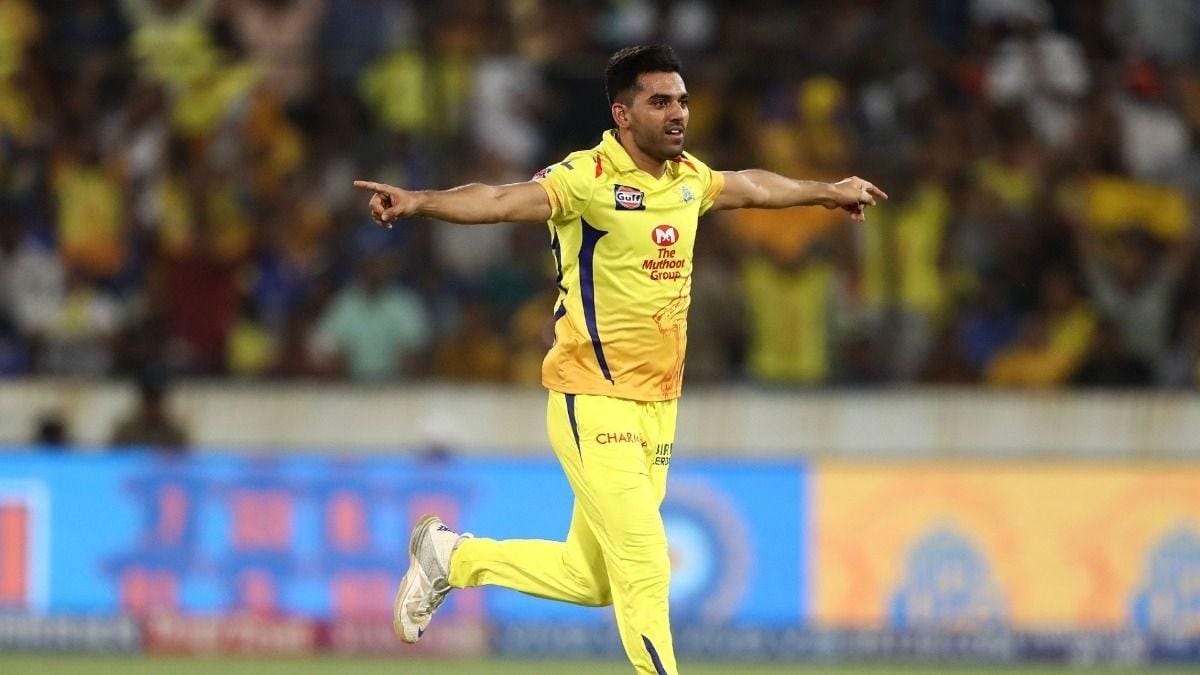The IPL has mandated a ‘cardio-stress test’ for all the players who have tested positive for the COVID-19 virus post recovery. However, the long-term effects of this virus on athletes is still largely unknown and health professionals and trainers warn about rushing back into playing competitively.
Two Chennai Super Kings players tested positive for the COVID-19 virus, raising questions about how soon players who have tested positive should be pressed into action. On September 1, Deepak Chahar, one of the infected players of the CSK camp posted on his social media saying, he hopes to be back in action pretty soon as he feels much better and is trying to keep himself fit.
https://twitter.com/deepak_chahar9/status/1300806633480769536
Ramji Srinivasan, high-performance coach and strength and conditioning trainer of India’s 2011 World Cup team, warns against rushing the players back into action.
“This is a life-and-death issue. Just a stress test to test the pulmonary levels may not be enough. This isn’t a fitness issue, it isn’t like an injury; that’s the first thing we need to understand. As a trainer, I don’t want blood on my hands by rushing through. The IPL would be played in hot weather conditions and it’s a high-pressure tournament where the stakes are high. The kind of stress a fast bowler, say, puts on his body is insane and we don’t know how a body post-Covid (asymptomatic or serious) reacts to such severe intensity. We need a proper medical team to take care of the recovery process. Worldwide, studies are emerging about the post-Covid scenario for athletes, which warns us that it can even get fatal,” Ramji said.
“Based on what the doctors are saying and studies emerging, I would say at least two weeks of rest after they recover, after they test negative. Let the body stabilise, and then careful monitoring should be done along with a battery of medical tests from ECG to a blood test to confirm as much as possible that the recovery is proceeding well,” Ramji says. “The truth is that we don’t have enough information as of now and there is a thin line between will power that all athletes feel they have in abundance and foolishness. It’s better to be safe than sorry.”
Ramji reckons it is best to play safe and monitor the recovery period carefully with the help of medical professionals. “With the kind of money, fame, and potential benefit to their careers that IPL provides, it’s understandable that players might want to get back to action quickly but it’s the responsibility of the authorities to ease them back. Don’t risk and regret later.”
How to monitor players’ health post-Covid
The players need to be carefully monitored for at least two weeks after recovering and the workload should be slowly increased under professional supervision. Chest x-rays are needed to see if it shows any scar, a CT scan of the chest may be required and a lung-function test should be done. Dr SK Chhabra, the pulmonary medicine head at Delhi’s Primus hospital, says the tests should be followed with weight management to cover up nutritional deficiencies and that this should happen for five-six months after recovery. “Even if it shows 100% recovery, the monitoring should continue. After that, there should be a pulmonary rehab.”
IPL teams to play 3 practice matches
IPL teams will be playing three practice games among themselves. It is learnt the teams wanted these warm-up games to be played with other sides but the request wasn’t approved by the IPL. With most of the players coming without any competitive games, it was decided to allow teams to play three warm-up matches among themselves.


